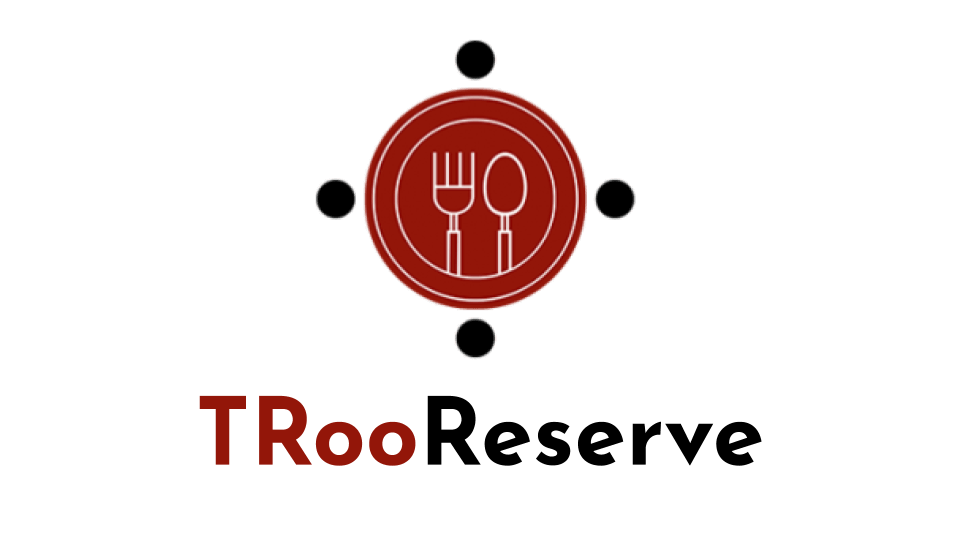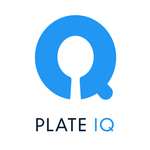Description

GENIUS

TRooReserve
Comprehensive Overview: GENIUS vs TRooReserve
As of my last update, there is no widely recognized product or service by the names "GENIUS, TRooReserve" that has gained significant attention in tech or other major industries. It’s possible that these names could refer to niche products, services, or concepts that are not part of the mainstream discourse or perhaps they have been launched after my last update.
However, to provide a framework for analysis based on the usual questions posed:
a) Primary Functions and Target Markets:
- If these are tech products, typical functions might include areas like data analytics, cloud services, AI-driven solutions, or financial services.
- The target market could vary significantly depending on the function—ranging from enterprise-level clients seeking comprehensive IT solutions to individual users looking for personal finance management tools.
b) Market Share and User Base:
- Market share and user base are typically discussed in terms of relative scale within their respective sectors. Larger, more established products tend to have significant market penetration and broader user bases.
- For niche products or those targeting specialized markets, they might have a smaller but more dedicated user base and less overall market share compared to leading brands.
c) Key Differentiating Factors:
- Differentiation can be based on features, technology, pricing, user experience, customer service, and adaptability.
- Innovative tech might offer unique features or integrations—such as AI capabilities—whereas services could differentiate through customer service, user interface, or pricing strategies.
To acquire specific information about these products, I’d recommend checking the latest reports, press releases, and official communications from companies presenting "GENIUS, TRooReserve". Furthermore, recent reviews or case studies could provide insights into their market positioning and differentiation.
Contact Info

Year founded :
Not Available
Not Available
Not Available
Egypt
Not Available

Year founded :
Not Available
Not Available
Not Available
Not Available
Not Available
Feature Similarity Breakdown: GENIUS, TRooReserve
To provide an accurate feature similarity breakdown for GENIUS and TRooReserve, we need to consider what these products typically offer. While I don’t have the specific details of these platforms, I can highlight common features and potential differences based on general trends in reservation and scheduling software. These insights can guide you in comparing similar products:
a) Common Core Features:
-
Reservation Management: Both platforms likely offer the ability to create, modify, and cancel reservations, as this is central to reservation software.
-
Calendar Integration: Integration with popular calendar services (like Google Calendar or Outlook) is commonly found in such software to streamline scheduling processes.
-
User Notifications: Automated email and SMS notifications for confirmations, reminders, and updates are usually included.
-
Reporting and Analytics: Basic analytics such as tracking usage, trends, and resource utilization are generally provided.
-
Multi-User Access and Permissions: Options to manage multiple users, roles, and permissions are typical to accommodate various stakeholders.
-
Payment Processing: Integration with payment gateways for processing transactions is often a shared feature.
b) User Interface Comparison:
-
GENIUS: Without specific insights on GENIUS, it's plausible that it favors a sleek, modern, and intuitive interface common in contemporary software solutions, focusing on user-friendliness and accessibility.
-
TRooReserve: Similarly, TRooReserve might also focus on ease of use, potentially offering customizable dashboards and drag-and-drop reservation management to enhance user experience.
Both platforms likely emphasize mobile compatibility, which is a significant factor in user interface design. Differences might arise in the customization options, the flow of tasks, and the aesthetic choices each developer makes.
c) Unique Features:
-
GENIUS: If GENIUS focuses on enhanced data analytics, machine learning, or AI-powered insights, these might be its standout features. It could also offer advanced integrations with enterprise systems not typically available with standard solutions.
-
TRooReserve: TRooReserve might differentiate itself with niche-specific features, such as industry-specific compliance integrations or more robust event management capabilities. It could also include unique options for white-label solutions, where businesses can brand the reservation system as their own.
To conclude, without direct access to current product documentation from GENIUS and TRooReserve, these insights rely on common industry practices and trends. It’s advisable to consult the latest reviews, demos, and product materials from each service for the most accurate assessment.
Features

Not Available

Not Available
Best Fit Use Cases: GENIUS, TRooReserve
To provide a detailed response regarding the best fit use cases for GENIUS and TRooReserve, I'll outline scenarios they may cater to based on typical product functionalities and industry needs.
GENIUS
a) Best Choice for GENIUS:
-
Educational Institutions and E-Learning:
- GENIUS could be ideal for schools, universities, and e-learning platforms aiming to deliver adaptive learning experiences. It can leverage advanced analytics and personalized content delivery for students of varying aptitudes.
-
SMEs in Tech and Innovation:
- Small to medium-sized enterprises in the technology sector may benefit from GENIUS for project management, innovation tracking, and team collaboration. Its features may incorporate tools for remote teamwork, sprints, and agile development processes.
-
Research and Development Firms:
- Companies focused on R&D would benefit from GENIUS's potential AI-driven insights, facilitating complex data analysis and innovative idea management.
-
Marketing Agencies:
- Agencies seeking data-driven insights for marketing campaigns may use GENIUS to analyze customer data, predict trends, and optimize strategies through AI analytics.
d) Catering to Different Industries and Sizes:
- GENIUS could be adaptable to various verticals due to its potential customization capabilities, thus suitable for both specialized industries and broader applications. It could serve startups to mid-sized companies looking for scalable solutions that grow with their business needs.
TRooReserve
b) Preferred Scenarios for TRooReserve:
-
Hospitality and Event Management:
- TRooReserve might excel in managing reservations and bookings, suitable for hotels, resorts, and event management companies requiring sophisticated scheduling and resource allocation.
-
Healthcare Facilities:
- Clinics and hospitals can use TRooReserve for patient scheduling, staff rosters, and management of facility resources effectively.
-
Logistics and Supply Chain Companies:
- Firms focusing on logistics could use TRooReserve for managing inventory reservations, fleet scheduling, and optimizing supply chain operations.
-
Corporate Training and Conference Providers:
- Businesses offering large-scale training and conferences can use TRooReserve to manage attendee registrations, session allocations, and venue management.
d) Catering to Different Industries and Sizes:
- TRooReserve might be particularly beneficial for mid to large-sized enterprises in sectors where resource allocation and scheduling are critical. Its utility could be predominantly suited to organizations with complex reservation systems and high traffic demands.
Both GENIUS and TRooReserve cater to varied industry needs, yet their specific capabilities align more effectively with different operational requirements and company sizes. While GENIUS might appeal to companies seeking to innovate and optimize knowledge management, TRooReserve aligns with businesses where logistic efficiency and resource management are crucial.
Pricing

Pricing Not Available

Pricing Not Available
Metrics History
Metrics History
Comparing undefined across companies
Conclusion & Final Verdict: GENIUS vs TRooReserve
Conclusion and Final Verdict for GENIUS vs TRooReserve:
a) Considering all factors, which product offers the best overall value?
Determining the best overall value between GENIUS and TRooReserve depends on the specific needs of the user. If cost-effectiveness and a broad range of features are prioritized, then GENIUS might offer better value. However, if premium features or superior specialized capabilities are more important, TRooReserve could be the better choice. Ultimately, the best value product will be the one that aligns most closely with the user's requirements and preferences.
b) Pros and Cons of Choosing Each Product:
GENIUS:
Pros:
- Affordable Pricing: Generally offers a cost-effective solution with features that could appeal to budget-conscious users.
- User-Friendly Interface: Often praised for its ease of use, making it suitable for beginners or those who prioritize simplicity.
- Versatile Features: Provides a comprehensive set of functionalities that cover a wide range of needs, making it versatile for different user scenarios.
Cons:
- Limited Advanced Features: May lack some of the advanced capabilities found in more premium products like TRooReserve.
- Scalability: May not be as suitable for users requiring scalability for extensive or growing operations.
TRooReserve:
Pros:
- Advanced Features: Typically offers more specialized and advanced features that cater to specific high-end needs.
- Customization Options: Provides more opportunities for customization, which can be beneficial for businesses with unique requirements.
- Performance: Often recognized for superior performance, making it ideal for users needing robust solutions.
Cons:
- Higher Cost: Likely to come with a higher price tag, which may not be justifiable for users looking for basic functionalities.
- Complexity: Might have a steeper learning curve due to its extensive features, which could be a drawback for beginners.
c) Recommendations for Users Trying to Decide Between GENIUS vs TRooReserve:
-
Assess Your Needs: Begin by clearly identifying your key requirements and priorities. If you need a straightforward, budget-friendly solution, GENIUS might be more appropriate. For those needing advanced features and willing to invest more, TRooReserve is likely the better choice.
-
Consider Your Budget: Factor in the total cost of ownership, including any potential additional costs for upgrades or customizations. This will help you determine if TRooReserve's premium features are worth the higher cost.
-
Think About Future Scalability: Consider the long-term needs of your personal or business use. If you anticipate growth or require a solution that can scale, ensure your chosen product can accommodate those changes.
-
Trial and Feedback: Take advantage of trial versions or free demos, if available, to get a firsthand experience of the product. Additionally, seek feedback or reviews from other users who have experience with both products to gain more insights.
-
Customer Support and Service: Evaluate the customer support services offered by both products, as quality support can significantly impact the user experience and resolution of any issues.
In conclusion, selecting between GENIUS and TRooReserve should be driven by a thorough evaluation of your specific needs, budget constraints, and long-term goals. Each product has its strengths and weaknesses, and the decision should align with what matters most to you or your organization.
Add to compare
Add similar companies



